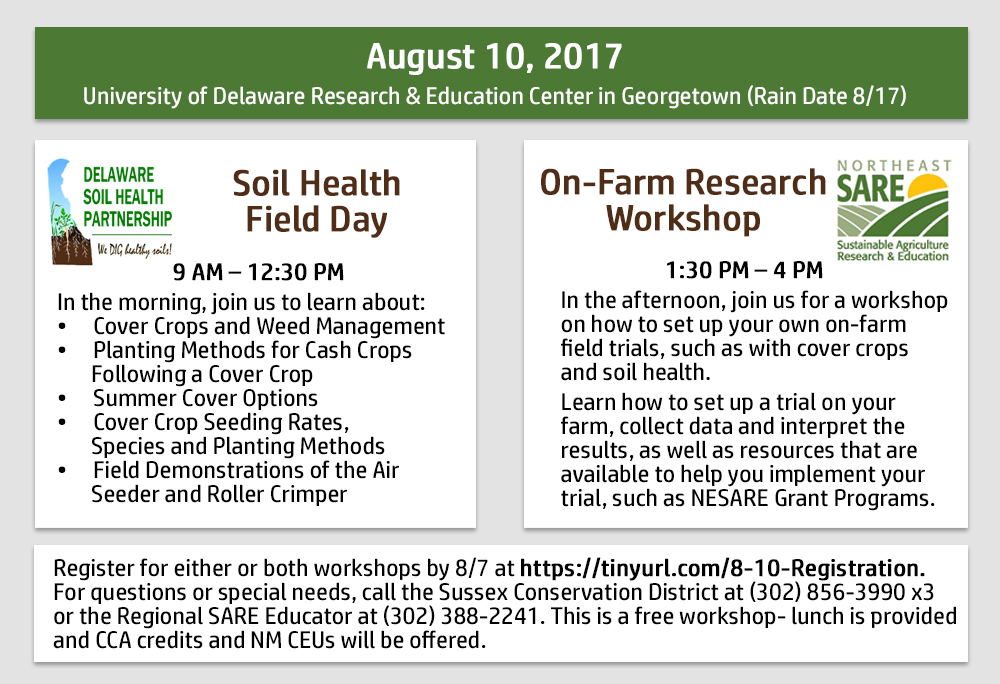Delaware announces Soil Health Field Day and On-Farm Research Workshop on August 10
Two Educational Programs are scheduled for August 10. In the morning there will be program on cover crops and soil health sponsored by the Sussex County Conservation District with University of Delaware and Delaware State University. In the afternoon, there will be a session on conducting on-farm research. More details will be provide in future newsletters, but this early notice is provided so you can mark your calendars.
See UD’s Weekly Crop Update for more details as they develop.
Update: A Flyer for the program is now available: 8-10-17 Flyer
You can register for the workshop here: https://tinyurl.com/8-10-Registration

